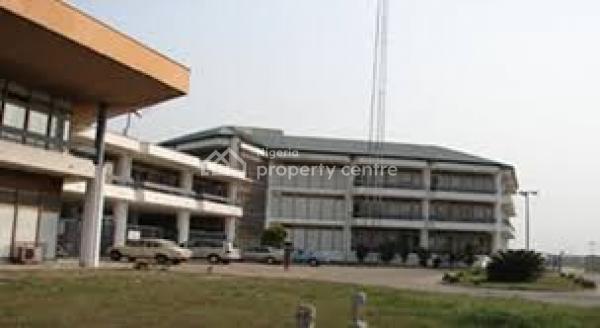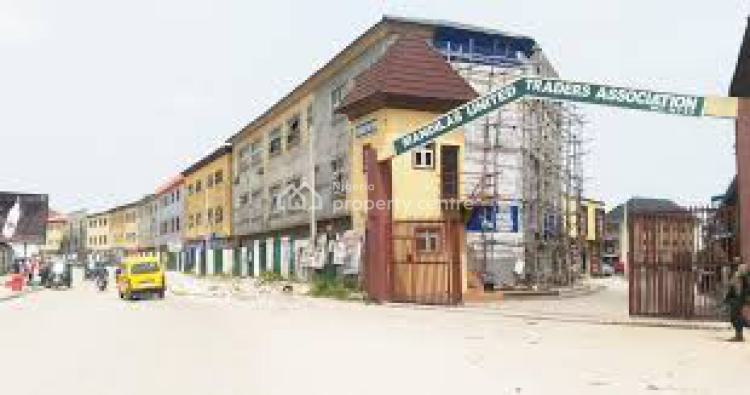ASPMDA is located within the Lagos International Trade Fair Complex, showcasing diverse products from various traders and associations ¹ The Lagos International Trade Fair Complex (LITFC) is a significant economic hub in Lagos, Nigeria. Here are some key points about the complex:

History
1. Constructed in the 1970s by Energoprojekt, a Yugoslavian company.
2. Opened in 1977 to host the first Lagos International Trade Fair.
3. Initially designed to host international trade fairs.
Development
The complex was built by Energoprojekt, a Yugoslavian company, in partnership with the Nigerian government. Notable architect Zoran Bojović designed the facility, which was the largest project undertaken by Energoprojekt in Nigeria.
Features
1. 350-hectare facility along Lagos-Badagry Expressway.
2. Home to various market traders, including Balogun Market relocates (2002).
3. Hosts multiple trade factions: Balogun Business Association, ASPMDA (Auto Spare Parts And Machineries Dealers Association) and Association of Progressive Traders (jewelers).
Design and Construction
1. Designed by Zoran Bojović, a Yugoslavian architect.
2. Constructed by Energoprojekt in partnership with the Nigerian government.
3. Biggest project of Energoprojekt in Nigeria.
Impact
1. Major economic hub in Lagos.
2. Employs thousands of traders and support staff.
3. Contributes significantly to Nigeria’s GDP.
Architectural Significance
1. Noted by Rem Koolhaas, a renowned architect.
2. Example of modernist architecture in Nigeria.
3. Reflects Lagos’s economic growth and international connections.
Challenges
1. Infrastructure limitations (parking, accessibility).
2. Environmental concerns (waste management).
3. Competition from newer markets.
Future Development
1. Planned renovations and expansions.
2. Integration with Lagos’s megacity vision.
3. Potential for increased international trade.
Lagos International Trade Fair Complex
Located along the Lagos-Badagry Expressway, the Lagos International Trade Fair. Complex is a 350-hectare facility that serves as a vibrant economic hub. Constructed in the 1970s and opened in 1977, it was designed to host international trade fairs.
Trade and Commerce
Today, the complex is home to various market traders, including those from Balogun Market, who relocated in 2002. Multiple trade associations operate within the complex, including:
1. Balogun Business Association
2. Auto Spare Parts And Machineries Dealers Association (ASPMDA)
3. Association of Progressive Traders (jewelers)
Economic Significance
The Lagos International Trade Fair Complex plays a crucial role in Nigeria’s economy, employing thousands and contributing significantly to the country’s GDP.
Architectural Importance
Renowned architect Rem Koolhaas has noted the complex’s modernist design, reflecting Lagos’s economic growth and international connections.
Challenges and Future Directions
Despite its significance, the complex faces infrastructure limitations and environmental concerns. Future plans include renovations, expansions and integration with Lagos’s megacity vision, potentially increasing international trade.
ASPAMDA
ASPMDA, or Auto Spare Parts and Machinery Dealers Association, sells more than just auto spare parts. You can also find:
Electronics:
Devices, accessories, cameras, projectors, generators, power inverters, home theatre systems and sound bars ¹.

Fashion and Clothing:
Jerseys, polo shirts, sneakers, t-shirts, trousers, chinos, beads, waist beads, men’s and women’s sunglasses and watches ¹.
Health and Beauty:
Fragrances, hair care, makeup, personal care items, skin care and cosmetics ¹.
Home and Office:
Furniture, kitchen and dining essentials, storage and organization solutions, large and small appliances ¹.
Babies and Kids:
Apparel, accessories, diapering essentials, bathing and skin care products, feeding equipment and gear ¹.
Sports and Travel:
Exercise bands, jump ropes and strength training equipment ¹.
Food and Beverages:
Breakfast foods, candy, chocolate, canned and packaged foods, coffee, cooking oil, grains, rice, herbs, spices, seasoning, noodles, pasta and soft drinks ¹.
TV and Home Appliances:
LED and LCD TVs, smart TVs, home furniture, bakeware, cookware, cutlery, knife accessories and vacuums ¹.
Sources:
- Wikipedia: Lagos International Trade Fair Complex
- Lagos State Government: LITFC
- Energoprojekt: Projects
